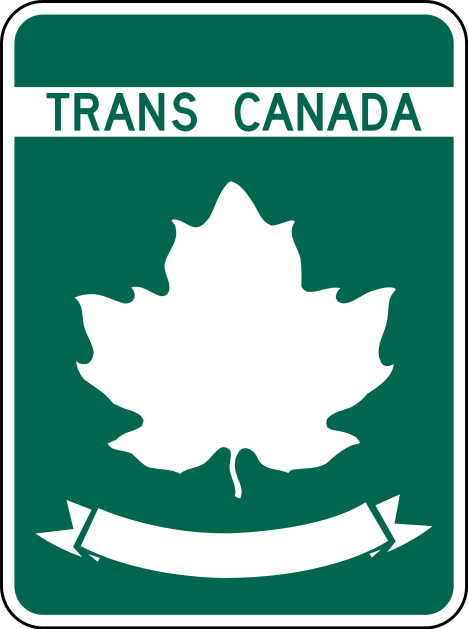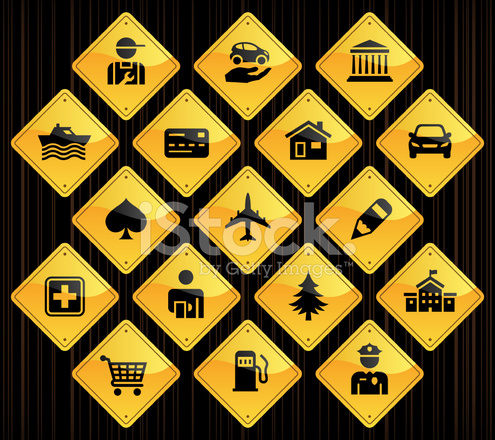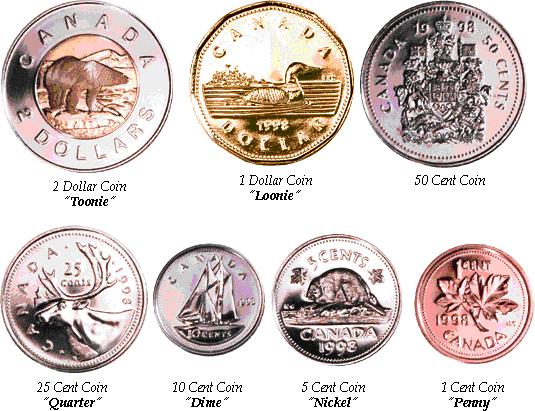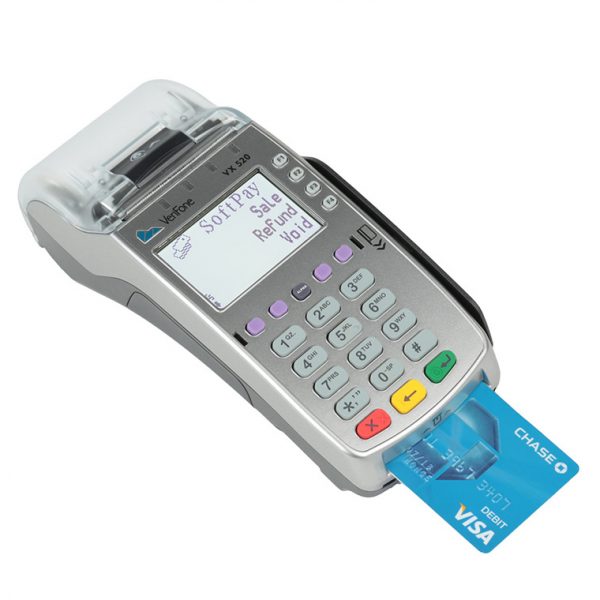The Canadian Maritimes are a wonderful and, dare I say magical, place to visit. There you will find many, many interesting and
picturesque places such as little seaside fishing villages, majestic mountains, interesting wildlife like moose and
caribou, and some of the friendliest people in the world. Depending on the time of year you go you may also be
treated to whales and icebergs. To us it was the trip of a lifetime.

| |
Before you cross the border coming back into the US, don't stock up on food items such as
meats,chicken, dairy, fruits and vegatables because they may
take it from you. Better to eat everything up and then restock your
fridge, freezer, coolers and pantrywhen you get into Canada.
|
Grocery stores and places to eat are generally few and far between, especially
up on the Northern Peninsula of NL.
Grocery stores tend to be small, with limited selections, so the rule is:
if you absolutely need it, take it with you. This includes essentials like meds
[for animals, too]
and other things you might require.
Large towns in the Maritimes pretty much consist of St. John and Moncton in New Brunswick,
Halifax / Dartmouth in Nova Scotia, Sydney close to the Cabot Trail,
Corner Brook and St. John's in Newfoundland, and Charlottetown in Prince Edward Island.
Check these places on Google Maps and you will see they are quite far between.
Canada can be quite expensive, especially food, restaurants and RV parks.
Gas and diesel is plentiful, even in Newfoundland. Diesel ran on the average
about 1.44 C$ per litre, equalling around $6 USD per gallon.
Roads can be rather abysmal, especially in Newfoundland. Campground hookups are often limited to (sometimes barely) 30 amp, and very few have
sewer connections. Don't count on finding much in the way of cable tv.
And depending on what phone carrier you have, you may find yourself with poor service, if at all.
I don't think there are many tv stations; it seems that everybody uses satellite. We also
saw few car washes.
Unlike places like Vancouver or Quebec, the Canadian Maritimes are not the kind of place you
want to go
if you are into night life, big cities or 5-star restaurants. If, however, you get off on
gorgeous shorelines, quaint little
villages, breathtaking parks and rugged countryside, then you definitely want to make this
trip.
And those little luxuries, amenities and conveniences you might have grown accustom to
while travelling? Well, forget them. You won't find them in the Canadian Maritimes, except
perhaps in large towns.
Stores are ill=stocked, and are often closed on weekends and/or Mondays.
At first this might sound
a bit disappointing and somewhat discouraging, but you will soon come to learn that it is
precisely that down-to-earth, basic lifestyle that gives the area its unique flavor and character.
I sincerely believe that a dramatic increase in so-called "civilization" would only serve to destroy
the allure and magic you will find there.
As mentioned earlier, the folk in the Maritimes are particularly friendly, especially
in campgrounds. Speaking of, I was quite surprised to find numerous campgrounds almost
everywhere in the Maritimes. Contrary to my preconceptions, you don't have to drive far to
get to another campground. Although I didn't do specific research on the subject, it felt
like you could find a campground around an hour or two away from wherever you might be,
even in Newfoundland, so Google away!
Border Customs
Again, my preconceived ideas failed me here. Crossing from Maine into Canada proved
to be almost a non-event. When I pulled up to the window, I got out of the truck and
handed the officer our passports. He was very friendly, and only asked me a few basic
questions. Was the trip for business or pleasure? Were we carrying any citrus, poultry
or plants? Did we have any alcohol or tobacco? They also discourage fresh foods, but a day's worth of food for your dog(s)
is generally allowed.
Curiously enough, he didn't ask to see documents for our dogs. This was especially
disappointing since we had been particularly dedicated about getting papers for their shots and
rabies vaccinations. So, when I proudly asked him if he wanted to see their papers he simply
looked at them peering out the truck window and said "No, they don't look dangerous!"
You might want to check currency exchange rates before you go. Depending on a lot of
things which mortal people don't tend to understand, exchange rates can vary between sometimes being
favorable for US currency, and sometimes being favorable for Canadian dollars. So if it turns
out that you are better off exchanging before you enter Canada, do it before you get to the
border. However, if you can get a better rate by waiting until you get into Canada, do it
there. When we crossed the border on I-95 at Houlton ME.
There was a Scotiabank in the town of Woodstock just past the border.
By the way, at Saint Stephen you will be on route 170 which leads to
the TransCanada Highway (TCH), a.k.a. route 1,
to head east across New Brunswick toward Moncton and then down to Nova Scotia.
If you have a digital odometer that can show either miles or kilometers, it might be
a good idea to set it to km either before or immediately after you cross the border.
Very few road signs in the Maritimes will show distances in miles, although some
on the TCh do.
Units of measurement
You may or may not be aware that Canada is on the metric system. Unlike America which
uses the foot-pound-second (FPS) system, Canadians use meter-kilogram-second (MKS) system.
Length is measured in meters, weights in kilograms, and time in seconds.
The major differences you will encounter are road signs showing
distances measured in kilometers rather than
miles, and fuel measured in litres rather than gallons. A kilometer (km) is 1000 meters. You
can easily convert kilometers to miles by multiplying by .6.
Remember this formula since it enables you to quickly convert Canadian speed limit signs
to familiar US speeds. Thus, 100 kilometers-per-hour (kph) is the same as 60 mph. So don't be
fooled by a sign that says the speed limit is 60 - that's actually only 36 mph.
Roads
|
The
Trans Canada Highway (TCH)
runs the entire length of Canada, all the way from Victoria BC to St. John's NL.
In general it is a very nice road. The part that we saw in the Maritimes had are very little commercial advertising,
and the scenery was quite nice.
The so-called "trunk" roads, such as route 3 in NL, also tend to be pretty nice.
State roads are also generally ok.
| |

| |
[click to enlarge]
|
|
That said, Canadian roads will never be up for any awards, and some
can make you just want to scream.
Some of the surface roads can be rough, and some can shake the fillings out of your teeth.
Nova Scotia isn't all that bad for the most part, but Newfoundland is another story.
Potholes are everywhere; they are tire killers for sure. Ruts make you think that you are driving on a big washboard.
Construction can cause delays, but traffic is generally light enough that they don't tend to
last too long. And speaking of potholes, can someone with road responsibility in Canada please view the
following videos?
New pothole repair technology and
Future Pothole Repairing Machine Future Road Repair Technology
With the singular exception of the
Confederation bridge
going Prince Edward Island, we didn't encounter many toll roads, although there are some around major areas
like Halifax / Dartmoth.
Some parts of the Cabot Trail have long, steep hills. If you plan to do the trail and are pulling a trailer,
it may be a good idea to set your auto-braking system up a skosh to help deal with coming down these hills.
You may also want to know that our transmission fluid overheated while going up one of the steepest hills; we
had to pull over for about a half hour to let it cool down, but it wasn't so bad since the pullover turned
out to be a very scenic lookoff.
Lest you think that I am being particularly hard on Canadian roads, the highways in New
England aren't up for any awards either. Ruts, potholes and general pavement distress
runs rampant there also. So don't think things simply take a turn for the worse as soon as you cross
the Canadian border; it's just that the Maritimes seem to have taken bad roads to a whole new
level.

| |
Secure everything. And I mean secure! And I mean everything! During our trip we had the microwave oven
shaken loose and fall onto the floor, twice! The legs broke off our center island, the couch and chairs
frequently tipped over, a front panel shook off one of our dresser drawers.
Doors opened with contents spilling out. The
fridge door came open more than once, tossing food all over the floor.
These are just a few of the frustrations we encountered due to bad roads.
Think about using something like baby locks to secure your doors, and tying or strapping everything down where possible.
In short, do everything you can to secure your contents.
Our most frustrating issues were with the slideouts. By the time the trip was over we had
broken cables on all three slideouts. I attribute this to road conditions because the slideouts
were being jostled all over the place. If I had to do it over again I would wedge 2/4 braces in
between the slideout walls and trailer walls.
|
|

|
Although most of the residents of the Maritimes speak English, you will find a lot of
road signs in both English and French. If you don't speak French don't worry about it;
I don't remember seeing any signs in French only. And this may be a good opportunity to
pick up a bit of useful French.
Exit numbers are sequential rather than matching
the km markers as they
do on most US interstates. Exits usually show facilities in icons, such as fuel, stores, eats, inns, museums, etc.
A few will show names of establishments, such as the popular Tim Hortons.
Speaking of road sign icons, some will challenge you to figure out. In fact, there are a
few that we still don't know what they mean. Here is an
interesting discussion of Canadian
road signs, and here is a
PDF doc from the Alberta transportation department.
With very few exceptions we saw neither litter nor graffiti. It reminded us of one of our trips in Europe where
the train crossed from southern Netherlands into Germany and the litter just disappeared!
We also saw very few cops. Also be aware that some so-called divided highways aren't.
Drivers, especially in Newfoundland, just won't pull over. They're not bad drivers [except in St. John's], it's just that
they don't seem to know or care if there is a long line behind them.
One of the things we had to get used to was seeing signs for businesses with arrows pointing one way or another,
only to find there was nothing that looked like a business in that direction. Either the business was in someone's
house which was not clearly indicted as a business, or it was somewhere down the road in that general direction.
An interesting aside: whereas we in the States like to refer to roadside vista viewpoints as lookouts or scenic views,
Canadians prefer to call them lookoffs.
|
Some of the road signs are a bit hard to figure out, such as an antenna for internet hotspots, a key
for museums, a jiggly line indicating bumpy roads, and so on. Others include signs for lodging, ---

| |
Take road signs seriously, especially ones warning of sharp curves, potholes, bumps,
bad shoulders and so on, and especially if you are pulling a big rig.
These signs aren't there for kicks - they really mean it!
|
| |

| |
[click to enlarge]
|
|
Oh, by the way, if you see a blue light coming up behind you, don't panic. For some reason,
in the Maritimes highway construction vehicles are allowed to use blue lights, so they're not restricted
to police vehicles like they are in the states.
Fuel
Gas and diesel was expensive, averaging around 1.44 C$ a litre, which comes out to be
about 4.56 US$ per gallon. As of this writing the conversion rate was 1.315 C$ to 1 US$.
Popular gas companies in the Maritimes include Shell, Esso and Irving, the latter being
the most prevelant.
There are very few what we think of as truck stops in the Canadian Maritimes. I recall only seeing around half a dozen
during our entire time in Canada.
Time
The eastern Canadian Maritimes occupy two time zones.
New Brunswick, Nova Scotia and Labrador are in the Atlantic Time Zone, which is an hour
ahead of the Eastern Time Zone.
Newfoundland is in a time zone all to itself, the Newfoundland Time Zone, which is a
half hour ahead of the ATZ.
An interesting thing we noticed about business establishments is that they
tend to close around 7 pm. This is not so much a hard and fast rule, but rather a
rule of thumb. So, with rare exceptions, don't count on stores being open late like you
might be used to in the States.
The RV season in Newfoundland starts around mid-May to the first of June,
and ends around Canadian Thanksgiving, which is usually about the
first week in October. If you go there, don't plan on pushing your stay past Thanksgiving,
as most of the RV parks will likely be closing up on you.
Speaking of time, the Maritimes seem to operate on "island time", which is another way of
saying the folks there
don't seem to sweat much of anything.
We probably saw a total of two cops on the TCH. Museums and other historical
sites often close around 4 or 5 pm. Many restaurants close around 7 pm. People don't mind leaving their cars
at the fuel pump while they go inside to buy junk food. Smaller stores often aren't open during what one
would think of as normal business hours.
Money
|
Canadian coins commonly come in $2, $1, 50 cent, 25 cent, 10 cent and 5 cent denominations. There is no equivalent
of our penny currently in use, although you might find a few still hanging around. They usually
round amounts up or down to the nearest nickle.
The $1 coin in called a "loonie" because it has a picture of a loon bird.
The $2 coin is called a "toonie" or sometimes "twonie", and is a silver coin with a penny-sized brass insert
in the center.
| |

| |
[click to enlarge]
|
| |

|
|
[click to enlarge]
|
Most laundromats in Canada typically take loonies, although some take toonies or a combination of the two.
Almost all campgrounds we stayed at had laundromats, although a few weren't in such good shape.
ATMs are plentiful and the fees are reasonable, usually around one or two loonies.
They mostly dispense 20 CD$ bills although some issue $50 and $100 bills if the transaction is large.
Tips normally range in the 10% to 20% range. I never encountered a situation where the tip was automatically added.
Most establishments take major credit cards.
We never tried to write checks while in Canada so I cannot offer any observations on that.
They have a rather unique thing in the Maritimes which they call "air miles." Contrary to what the name may
suggest it has little to do with accumulating points from frequent flying. Rather, it is a loyalty rewards system where you get
points for your purchases, which can later be redeemed for travel and gifts. Most establishments participate,
including gas stations, grocery stores, merchandise stores and so on. I never participated in the program, so I
don't have much more to offer, but here is a link
to a website where you can learn more. If you plan to stay in Canada for a while it may be worthwhile to look into it.
| |

|
Food
Before you go to Newfoundland, make sure you stock up your fridge, freezer, coolers and pantry with your favorite whatevers.
Grocery stores and places to eat are generally few and far between, especially up on the
Northern Peninsula, where food tends to be expensive.
Much of food in the Canadian Maritimes is pretty much like what you would find in the US.
However, there are some notable differences.
- You can find fish & chips almost everywhere; halibut in Nova Scotia, and cod in
Newfoundland.
- The fish & chips, like many other foods, always come with fries - lots and lots of fries, and
usually covered with gravy.
- Pizza is common in Nova Scotia, but not so much in NL. Hey, want to try something interesting?
Try to get pizza without pepperoni !
- Cod eyes and cheeks are a delicacy. They are quite good but not for the timid.
- Donair is popular in Nova Scotia. It's sorta like a Greek gyro but has a different flavor.
See here for a description.
Grocery stores tend to be small, with limited selections.
Eateries tend to have only one main item: fish and chips. Whereas the fish in Nova Scotia is usually halibut,
in NL it's always cod and, more than likely, it will be good. They've been doing cod for a long time and have it down
pretty good. Squid dishes are also a favorite that we enjoyed very much.
The seafood in the Maritimes is great. Halibut, cod, mussels, squid and lobster are all delicious. Nova Scotia fish and chips
usually come with halibut; in Newfoundland it's cod, which I think is even better than the halibut.
The town of Digby NS is famous for its mussels. The squid in Newfoundland is to die for!
Newfies do love themselves some fries! It seems like no matter what you order at almost
any restaurant, it always comes with a
huge, heaping mess of fries with gravy. They are good, but why so much? Seems like a bit of
overkill, but it may be that the locals stock up for the oncoming winter season.
They also love pepperoni, pizza and, of course, pepperoni pizza, especially in Nova Scotia. I remember seeing several deli
cases at convenience stores almost completely stuffed with pepperoni.
Personally, we didn't find the lobster as good as when we lived in New England. Moreover, you won't find all
the little lobster roll and little neck clam stands that you would in, say, Cape Cod.
Unless you happen to be in one of the few big cities, don't count on finding much in the way of supermarkets. Grocery stores
tend to be rather small and have limited selection.
You won't find the number and variety of restaurants in NS and NL that you would in the US. Although we haven't been there yet,
I do hear that the restaurants in Montreal and Quebec offer a large number of very fine and varied restaurants.
|
Oh, one other thing you should know.
When you are ready to check out at a restaurant in Canada, don't be
surprised if the wait person hands you a little machine for you to stick your credit card into. I believe it may
be Canadian law, but they are not allowed to walk away with your card,
presumably to make it impossible
for someone to copy your card data. Rather, you insert your own card into
the machine, which allows you to add a tip amount and approve the transaction.
I also noticed that this practice is finding its way
into parts of New England, and I think it would be a great
idea for the rest of the US.
| |

| |
[click to enlarge]
|
|
Lingo
See the section on
Canada Speak for examples of the unique and colorful words and phrases used in the Canadian Maritimes.
RV Parks
Worried that you might have a hard time finding RV campgrounds while travelling in the
Maritimes? Don't be - they're everywhere! I had originally been worried about the same thing
until I started Google-ing RV parks in order to make reservations for our trip. I was
quite surprised to find that I could pick and choose among many.
But don't think that things are all milk and honey. RV parks in the Canadian Maritimes
can be relatively expensive, especially during the high season (see below). And don't expect all the
amenities you might expect to find in a lot of RV parks in the US. Sewer and 50 amp service in the Maritimes are luxuries. And don't expect to find much in the camp stores
other than munchies and junk food. They sometimes sell ice, ice cream and firewood, but you are unlikely to find
things like groceries or RV equipment.
Some campgrounds in NL have water boil warnings in effect. This means that water you drink should be boiled and cooled beforehand.
It should be fine for washing dishes or bathing. We never actually boiled any water since we
always carried several jugs of water with us, which we
purchased at grocery stores along the way.
In many if not most RV parks in NS and NL, seasonals are prevalent and permanently occupy a lot
of sites. Some are retirees and some are simply folks that like to spend weekends there.
I was constantly surprised when asking the seasonals where they are from, thinking that they
would say something like Montreal or Quebec. Imagine my surprise when it turned out the majority
would say something like "Oh, a few miles down the road."
As you browse through the different legs of the trip you may notice that we didn't stay at many
campgrounds for more than two or three days. The reason is that there's so much territory to cover and
so many things to see and do. We normally like to hang around for four or five days but if we did we wouldn't have
been able to experience all those wonderful places and things. While it's a slight hassle to pick up and go
soon after we arrive, we soon got used to it and always looked forward to getting to the next place. It's sort of
like when we got a EuroRail pass for 10 days and got up every morning anxious to go to the train station and decide
what country in Europe we would visit today!
Weather
While we were there in the summer of 2018 the weather was unseasonably hot, much like it
was along the entire eastern seaboard of the USA. An awful lot of the residents there were
having a hard time of it, primarily because air conditioning is not prevalent in the area.
I can't really say whether it was due to global warming, climate change or what, but
everyone was saying they had never seen anything like it before. Of course, being from
south Florida we felt right at home ☺.
Late spring in Nova Scotia from late April to mid-June can range between 50 to 70 degrees F.
Summer tends to range between 70 and 80. Fall, between mid-September to mid-November range
from 50 to 70.
Here is a good little writeup on
NS seasonal temps.
Camping Season
RV campgrounds in the Maritimes are normally open from around mid-May to Thanksgiving, which comes on a different date than ours.
While Thanksgiving in the US always comes on the fourth Thursday in November, in Canada it varies from year to year
and came on 8 October when we were there in 2018. Here is a list of
Canadian holidays for 2019.
The RV season in Canada starts later and ends earlier the farther north you go in Canada, and
the Maritimes are
no exception. We left Newfoundland in the second half of September and it was already starting to get cold.
When we got off the ferry in Nova Scotia the temps were much warmer. Needless to say, when we got down to around
Pennsylvania it was up in the 80s.
By the way, in Newfoundland it snowed in June of 2018. Would you have wanted to be there in an RV that is not
equipped for four-season temps?
The People
We really cannot say enough about the folks we met in the Maritimes. Saying that they are
"real nice" just doesn't seem to be enough. They may in fact be some of the nicest people in the
world, except maybe for the Irish. Here are a couple of personal Reader's Digest stories typical
of the area. Once while driving around an interesting little fishing village, we came across a
couple working on a fence in their front yard. Being how I'm given to just stopping and talking
with folks for no particular reason, that's exactly what I did. After a few amenities like "How
does it feel to live in a little paradise like this?" and "Just how much firewood do you burn
in the winter?", we inevitably got around to talking fish and moose, and how much I was
looking forward to trying moose meat. In mid-sentence, the guy
told me to hold on a sec and went into his house. Lo and behold, he came out with a handful
of cod and moose steaks!
Another such story had to do with when we took a ferry from Eastport over to Morris Island.
Now Morris Island won't win any tourism awards, but we went there for the scenery as well as
the ferry ride. The weather there was a bit nippy and misty, so I stopped in at one of the two
little "stores" on the island for a cup of coffee. Unfortunately, the lady there said that the
coffee was all gone and she had no plans to make more. I guess I must have looked unduly
disappointed when I left. We went immediately back to the ferry to await boarding. You can
imagine my surprise when a few minutes later, she pulled up with a fresh thermos of coffee and
- yep, you guessed it - some cod! Apparently she was so taken by my disappointment that she
hurriedly brewed another pot, grabbed some fish and jumped into her truck.
I ask you, where you gonna find that kind of consideration anywhere else?
There's also the story about the man I talked to when we found a historic museum closed.
While discussing the fact that my wife was into orchids, and that we planned to gather
as much driftwood as possible to mount them on, and how much I thought that the big piece
of driftwood next to his house was the kind of thing we were looking for
and where we might find something like it. He up and offerred to
give it to us. He wouldn't take any money for it, proclaiming that his grandkids would
likely find more. Moral - be careful what you admire up there!
Such stories abound. In fact, I was told more than once to not be surprised is a newfie
actually invited you into his house for a drink or dinner. I must confess that it never
happend to us; it would have been a special treat.
In hindsight, I wish we had known about such stories in advance. We certainly would have
figured out something to swap with the good folk for their acts of kindness. I haven't given
much thought to what such gifts might be, but I encourage you to think about it if you do
plan to journey up into Newfoundland.
Oh, by the way, you'll come to feel much safer in the Maritimes than you might back in
the States. I talked to many people who said they don't even bother to lock their vehicles
or houses. The large cords of firewood stacked along the highways don't seem to get pilfered,
and neither do the little roadside gardens. In much of the Maritimes, and Newfoundland in
particular, you can pretty much pull over and dry camp whereever you can find a spot, but try
not to park on obviously private land. We saw lots of RV-ers boondocking, and nobody will
bother you.
Many, many people in NL are, shall we say, naturally well-rounded and well-insulated.
Maybe it's from the fries and gravy-heavy diet. People living in harshly cold climates
generally tend to "stock up" for the winter, but it may also have something to do with
genetics.
There are three questions almost everyone asked of us: where are you from, is this your first time in NL,
and what do you think of your president? I always enjoyed seeing their reactions when I said that we were
from south Florida, which inevitably led to a discussion about how they usually wintered in places like
Tampa or Sarasota. And yes, it was our first time in Canada, which then led to all kinds of discussions
on where to go and what to do. Regarding our president - no comment.
Some Final Thoughts
Forget any conveniences you may be accustomed to back home. Unless you happen to be in a larger city like
Halifax / Dartmouth, Corner Brook or St. John's, they won't be there. If you are lucky the small towns and
communities might have a convenience store [something like a 7/11], a gas station or two, and a place to grab something to eat.
If you are very, very, very lucky there might be a Foodland, Irving station with diesel, bank, pharmacy and a couple
good restaurants. Only in the largest metro areas will you find things like Costco, Best Buy, Staples, PetSmart, Walmart,
Kent [building supplies], Canadian Tire [like Home Depot], a vet, [real] beauty shops and fast food restaurants you may
be familiar with.
For those of you used to fast internet access - or indeed, internet access at all - or phone service everywhere,
you will find that eastern Canada in general, and Newfoundland in particular, is a technological Bermuda Triangle.
I found out too late that our Sprint service offers a high-speed, no limit service called Unlimited Premium by which
we could get internet access through our phone's hot spot. When we came back I updated to the service, so I will
let you know how it turns out after we make our trip next year to the National Parks.
Know your trailer height, weight and length. Low bridges did not seem to be a problem in the
Maritimes; our fifth-wheel is [TBD] from ground to top of a/c unit and we didn't encounter
any unpassable areas anywhere in Canada. However, the drive up in the States could present some problems if you
take any back roads. You should also know your trailer weight, as some bridges in the Maritimes
can be a bit old and rickety. RV length will be necessary if you use the
online ferry website
to make reservations. BTW, your trailer is considered a "high trailer" in ferry lingo.
If you, like us, don't think you can survive without satellite TV, you might have a hard time if you go to
Newfoundland. While our DTV service worked fine in Nova Scotia, NL proved to be a bit too far to get reception.
While we were there I learned that you can rent a Bell satellite system, which is their equivalent of DirecTV and Dish.
We didn't take advantage of it because we found out about it too late, but if you want to look into it
here is a link to their service. If you do rent one, please let me know how it turned out.
If you are into astronomy, Canada is not a bad place to be. Although the skies were frequently overcast while we were there,
when they did clear up it was something to behold!
My final piece of advice? Explore! I affectionately refer to the Maritimes as the "Poke-a-Nose", meaning that in order
to get the maximum reward from what the area has to offer you have to poke your nose into every nook and cranny. If you pass
a road that you can barely get your vehicle down, take it, especially if you think it
might lead down to the water.
Finally, Nova Scotia, the Cabot Trail and Newfoundland are special, in that there are large stretches where you literally cannot
travel a hundred yards without having to stop and take more pictures. The opportunities are myriad and it would be a shame if
you leave without taking advantage of everything the area has to offer - especially photo ops. And remember, we took
about 3000 photos during our trip, so that should tell you something!
Go to the first leg of the journey
